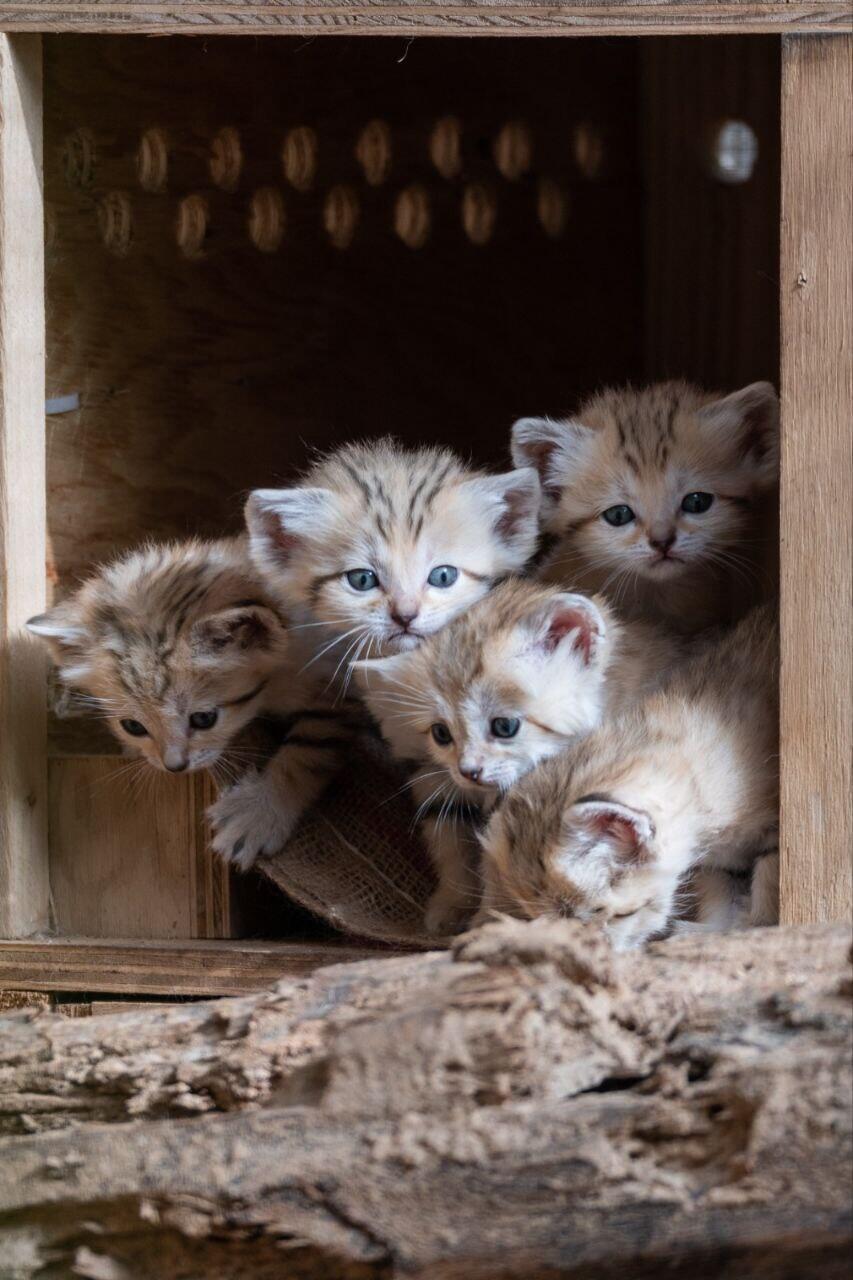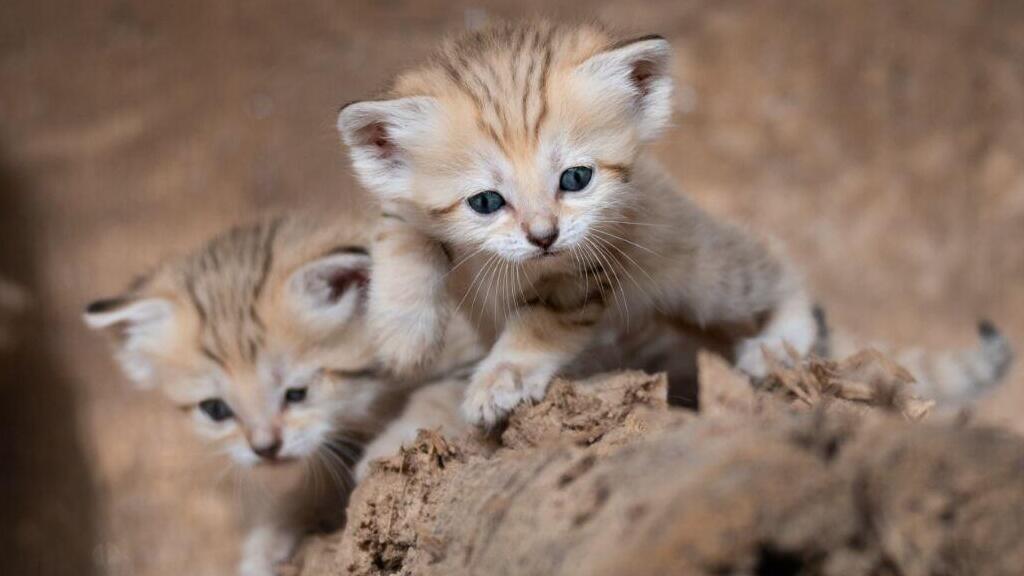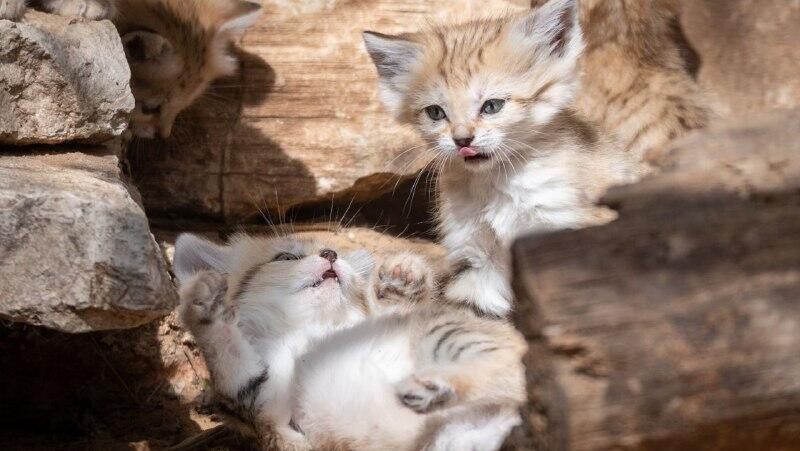A couple of rare sand cats, globally recognized as endangered, on Monday welcomed five kittens at the Ramat Gan Safari Park, bringing Israel's population of the species to a solid seven.
The proud parents of the newborn wild cats are a two-year-old female brought to Israel from a zoo in France, and a four-year-old male brought from Sweden. Prior to the birth of their offspring, the parents were the only two sand cats of their kind in Israel.
The Safari Park in Ramat Gan said the European couple initially didn't seem to get along, but as time went by, they got closer, grew fond of each other and eventually mated.
On the day the staff at the safari discovered the female sand cat was pregnant, everyone rejoiced, breathing a sigh of relief. Despite their joy upon learning she gave birth to five kittens, the caregivers kept their distance and allowed the new mother to attend to her babies in peace.
The safari said nurturing five kittens is rare by sand cat standards, given that usually most of the offspring don't survive. Hence, it was a relief when after several weeks all five kittens opened their eyes and appeared to be strong and healthy. The caregiving staff attribute this marvel to the majestic mother sand cat.
The kittens are now already strolling around outside, and have even reunited with their father in the past few days. The safari reports that often times interactions with the father are concerning among this species, for they may provoke violence towards the kittens.
However, their mother protects her kittens and doesn't allow her mate to come too close to her precious babies.
Sand cats are recognized as endangered worldwide. There are only a total of 178 of them currently living in zoos across Europe, and less than 10,000 left in the wild. In the past, they existed in Israel but eventually became extinct in the region.
Zoos, such as the Ramat Gan Safari, that take part in efforts to boost the species' reproduction rate to bring more sand cats to the world.
The Israeli-born kittens will eventually be transferred to zoos in Europe, where they will hopefully continue to help the species' population increase.




